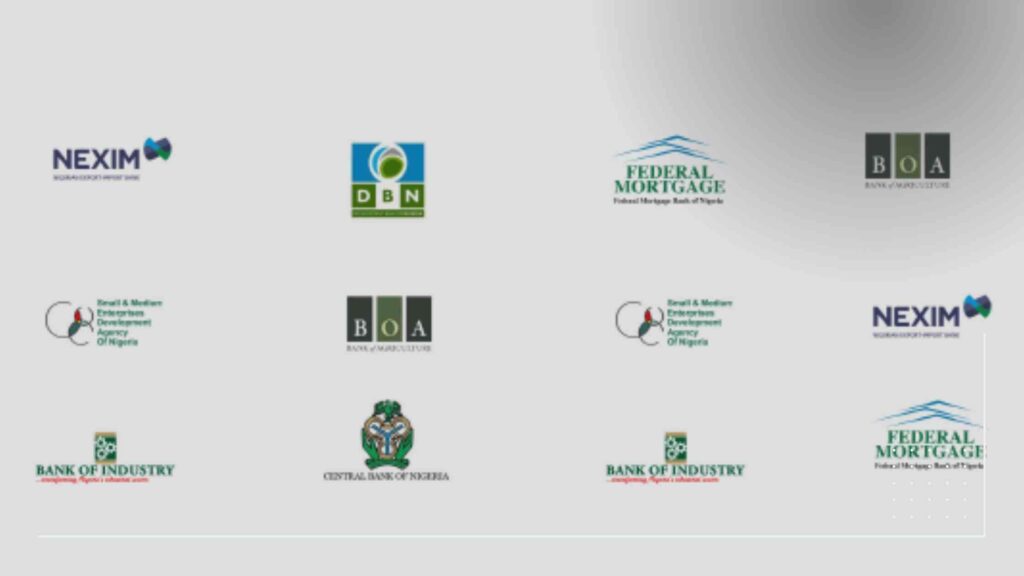Venturing Into the World of Export: A Comprehensive Guide for Nigerian Entrepreneurs

by Counseal Team
Updated March 7, 2024

If you’ve been rummaging through the business landscape in Nigeria, trying to pin down that unique, lucrative opportunity, then let us introduce you to the world of export business.
Why Export Business?
Exporting is not just about shipping goods from one country to another. It’s a strategic move that comes with a plethora of benefits. For starters, it’s an avenue to rake in some foreign exchange, boosting your revenue in a way that domestic sales might find hard to match.
And it’s not just about you. As an entrepreneur, you’re part of a larger ecosystem. By venturing into exporting, you’re helping to diversify our economy, create jobs and expose your products or services to the international markets.
But, how do you dip your foot into this promising sea of opportunities? That’s what we are here for. Buckle up as we take you on this exciting journey of starting an export business in Nigeria.
- Understanding the Export Landscape
- Diving Into the Nigerian Export Market
- Legal and Regulatory Requirements: The Maze You Need to Navigate
- The Export Process and Procedures: Your Roadmap to Success
- Wrapping Up
- Why Commodities Are a Gold Mine for New Exporters
- Finding and Wooing Genuine Buyers for Your Commodities
- Sealing the Deal: Negotiating and Closing with Your Buyers
- Diversifying and Expanding Your Product and Market Portfolio
- Building and Managing a Successful Export Team
- In Conclusion...
- FREQUENTLY ASKED QUESTIONS
Understanding the Export Landscape
Before diving in, it’s crucial to understand the terrain you’re about to tread. Exporting involves a series of processes that might seem daunting at first, but trust us, they’re not insurmountable. The following points will guide you in navigating the export landscape.
Identifying Your Product or Service
First things first, what are you exporting? Is it a product or service? If it’s a product, ensure it has a competitive advantage in the international market. Consider factors such as quality, price, uniqueness, and demand. If it’s a service, make sure it’s something other countries need and are willing to pay for.
Researching Your Target Market
As with any business, you need to know who your customers are. What countries need your product or service? What are their import regulations? Understanding these will help you tailor your offering to meet their needs and comply with their rules.
Crafting Your Export Plan
An export plan is your roadmap. It outlines your goals, strategies, and the steps you’ll take to achieve them. Remember, a plan not only guides you, but it also shows potential investors that you mean business.
Registering Your Business
Just like in Nigeria, you need to register your business with the Corporate Affairs Commission and registered with the Nigerian Export Promotion Council (NEPC). Trust us, crossing your legal t’s and dotting your i’s now will save you a world of trouble later. However, This process varies from country to country, so do your research to ensure you follow the correct procedures.

Financing Your Export Business

Exporting requires capital. You’ll need funds for production, packaging, shipping, and marketing among other things. There are several financing options available such as loans, grants, and investors. Institutions like the Bank of Industry and the Nigerian Export-Import Bank offer loans designed specifically for businesses like yours. The African Export-Import Bank and the Export Credit Guarantee Corporation are other viable options. Choose what works best for you.
Building Relationships
Building relationships with key players in your target market can give you a leg up. This includes government officials, business partners, and customers. Networking can open doors that would otherwise remain shut.

Complying with Regulations
Every country has its own import and export regulations. Ensure you understand and comply with these to avoid penalties or even expulsion from the market.
Shipping and Logistics
This is where the rubber meets the road. Make sure you have reliable shipping and logistics partners to ensure your products or services reach your customers in good time and in good condition.
Providing After-Sales Service
Customer service doesn’t end once the sale is made. Providing after-sales service can help you build a loyal customer base and foster repeat business.
Tracking and Evaluating Your Progress
Finally, you need to track and evaluate your progress. This will help you identify what’s working, what’s not, and make necessary adjustments.
Starting an export business in Nigeria is not a walk in the park, but with the right guidance and determination, it’s a journey worth embarking on. So, are you ready to take the plunge? Let’s dive in together!
Diving Into the Nigerian Export Market
If you’re planning to dip your toes into the Nigerian export market, you’re in for a ride. It’s a promising arena, with a market size that’s growing at a steady pace. But what are the golden opportunities within this market?
Well, Nigeria has been making waves in sectors such as agriculture, solid minerals, oil and gas, and services. These sectors have shown high demand and potential on the global stage. For instance, oil and gas sector alone saw a whopping 82% increase in its revenue from exports between 2018 and 2019. Quite impressive, right?
However, it’s not all smooth sailing. As with any market, there are challenges that could make your voyage a bit rocky. But hey, no great achievement comes without a few hurdles, right? lets explore the regulatory guidelines for setting up your export business.
Legal and Regulatory Requirements: The Maze You Need to Navigate

Before setting sail, it’s essential to understand the legal and regulatory requirements of starting an export business in Nigeria. Think of it as your compass guiding you through the business sea.
You’ll need to register your company and obtain an export license. Also, you must comply with customs and tax laws. Sounds daunting? Don’t worry, various agencies are at your service to help you navigate this maze. Entities like the Nigerian Export Promotion Council (NEPC), the Nigerian Customs Service (NCS), and the Central Bank of Nigeria (CBN) are there to guide you.
The Export Process and Procedures: Your Roadmap to Success
Now that you’ve got your legalities sorted, let’s get down to the nitty-gritty – the export process. It’s a journey from identifying a product and market, finding a buyer and supplier, negotiating contracts and payment methods, to shipping and delivering goods and finally, receiving and repatriating the proceeds.
Here’s a step-by-step breakdown of the procedure:
- Identify a product and market ripe with potential.
- Find a buyer and supplier who are reliable and deliver value.
- Negotiate a contract that protects your interests and ensures a fair deal.
- Choose a payment method that’s secure and feasible.
- Ship and deliver the goods in a timely and efficient manner.
- Receive and repatriate the proceeds back to Nigeria.
Sounds simple enough? Well, it can be, provided you follow some best practices. Conduct thorough market research, pick a reliable freight forwarder, secure adequate insurance, and most importantly, keep proper records. It’s these little details that can make or break your export operation.
Wrapping Up
Starting an export business in Nigeria can be a rewarding experience. But as with any business venture, it requires careful planning, understanding of the market, and adherence to legal and regulatory norms. But before you embark on your journey we will shed more light on commodities as the gold mine for exporters.
Why Commodities Are a Gold Mine for New Exporters
Are you wondering which products to export as a newbie in the business? Well, commodities are your answer! They possess a high demand, are low cost, readily available and require simple processing. In Nigeria, the most lucrative and popular commodities to export include cocoa, cashew, sesame seeds, ginger, and charcoal.
Think we are making this up? A quick look at this report will back up our claims. Another study shows that the export of these commodities have been on a consistent rise, contributing significantly to Nigeria’s GDP.
Finding and Wooing Genuine Buyers for Your Commodities
Great, you’ve got your commodities ready to go. So, where are the buyers? Thanks to the internet, you can find genuine buyers on online platforms, trade fairs, trade associations, or through referrals. The best part? Platforms like Alibaba, TradeKey, ExportersIndia, and Global Sources have made it even easier to connect with buyers worldwide.
But, let’s be honest, we all want to make a good first impression, right? To attract and impress buyers, ensure your profile looks professional, offer competitive prices, and provide samples. And remember, follow-ups can be the difference between a closed deal and a missed opportunity.
Sealing the Deal: Negotiating and Closing with Your Buyers
Negotiations can be a tough nut to crack, but understanding your buyers’ needs and offering value-added services can tip the scales in your favour. When it’s time to agree on terms and conditions, remember to consider the quantity, quality, price, payment method, delivery time, and dispute resolution.
Now, we know what you’re thinking. What if things go south? Well, challenges like fraud, non-payment, quality complaints, and shipment delays are common in the export business. However, with proper planning and effective communication, these hurdles can be overcome.
Remember, the key to a successful export business is not just about selling commodities, but also building trust and delivering value. So, are you ready to make your first $10,000 in the export business?
Diversifying and Expanding Your Product and Market Portfolio
It’s time to think about growth. One effective way? Diversification and expansion. This involves the following:
Adding New Products and Exploring New Markets
Adding new products to your portfolio and exploring new markets are two proven ways to diversify. But, how do you know what products to add or which markets to explore? This is where market research comes in handy.
Strategies for Diversification and Expansion
Attending trade missions and joining trade networks can provide you with valuable insights. Collaborating with other exporters can also be fruitful. Remember, the goal isn’t just to diversify, but to do so in a way that minimizes risks and maximize opportunities. Test the market, adapt to local cultures, and always comply with regulations.
Building and Managing a Successful Export Team
As you grow, you’ll need a team to help you manage your expanding business. But building and managing a team is no small task, hence here are some points to note:
Hiring the Right People
Start by hiring the right people. Consider roles such as an export manager, an export coordinator, an export marketer, and an export accountant. These are key roles that can help your business thrive.

Enhancing Team Productivity
Once you have your team, it’s essential to keep them motivated. Set clear goals, provide regular feedback, and offer training and development opportunities. If conflicts arise, resolve them swiftly.
The journey to scaling your export business may seem daunting, but with the right funding, a diverse product and market portfolio, and a stellar team, you’re well on your way.
In Conclusion…
Nigeria is known for its vibrant and diverse economic scene as Africa’s largest economy. Exporting in Nigeria isn’t just about oil; there’s an array of sectors waiting for your venture, from agriculture and mining to fashion and tech. It’s all about finding where your passion intersects with market demand. Look at the sectors thriving in Nigeria and examine the international markets craving those products.
Have questions, or need more help? Don’t hesitate to reach out to us at Counseal.com. We’re here to help you make your mark on the global stage. Ready to take the leap? Let’s turn those export ambitions into reality.
FREQUENTLY ASKED QUESTIONS
What is export business and how does it work?
Export business is the act of selling goods or services from one country to another. It involves finding buyers, negotiating contracts, shipping products, receiving payments, and complying with regulations. Export business can help you expand your market, increase your revenue, and diversify your income sources.
What are the benefits of export business for Nigeria?
Export business can benefit Nigeria in many ways, such as:
- Generating foreign exchange and improving the balance of trade
- Creating jobs and boosting economic growth
- Enhancing the competitiveness and quality of local products
- Promoting the image and reputation of Nigeria in the global market
- Fostering innovation and entrepreneurship
How do I register my export business in Nigeria?
To register your export business in Nigeria, you need to follow these steps:
- Register your business name with the Corporate Affairs Commission (CAC)
- Obtain a Tax Identification Number (TIN) from the Federal Inland Revenue Service (FIRS)
- Register with the Nigerian Export Promotion Council (NEPC) and obtain an export license and certificate
- Open a domiciliary account with a commercial bank
- Join a relevant trade association or organization
What are the best products to export from Nigeria?
Nigeria has a variety of products that can be exported to different countries, depending on the demand, profitability, availability, quality, and competitiveness of the products. Some of the best products to export from Nigeria are:
- Agricultural products: cocoa, cashew, sesame, ginger, shea butter, etc.
- Mineral resources: crude oil, natural gas, gold, iron ore, etc.
- Manufactured goods: textiles, leather, plastics, etc.
- Services: tourism, education, entertainment, etc.
How do I find and attract buyers for my export products?
To find and attract buyers for your export products, you need to do the following:
- Identify your target market and segment your buyers based on their needs, preferences, and behavior
- Conduct market research and analysis to understand the market trends, opportunities, and challenges
- Develop a unique selling proposition and a marketing mix for your export products
- Promote your export products through various channels such as online platforms, trade fairs, exhibitions, etc.
- Build trust and relationship with your buyers through communication, feedback, and after-sales service
How do I manage and grow my export business in Nigeria?
To manage and grow your export business in Nigeria, you need to adopt these best practices:
- Plan and monitor your export business activities and performance
- Manage your logistics and supply chain efficiently and effectively
- Secure your finance and cash flow through various sources and methods
- Mitigate your risks and uncertainties through insurance, hedging, etc.
- Innovate and improve your export products and processes
- Diversify and expand your export products and markets
- Learn and adapt to the changing market trends and customer needs
What are the challenges and opportunities of export business in Nigeria?
Export business in Nigeria faces some challenges such as:
- High cost of production and transportation
- Inadequate infrastructure and facilities
- Unstable exchange rate and inflation
- Complex and inconsistent regulations and policies
- Intense competition and low-quality standards
- Political and security risks
However, export business in Nigeria also offers some opportunities such as:
- Large and diverse domestic market
- Abundant and untapped natural and human resources
- Favorable trade agreements and incentives
- Growing demand and awareness for Nigerian products
- Emerging and expanding markets in Africa and beyond
- Digital technology and innovation




